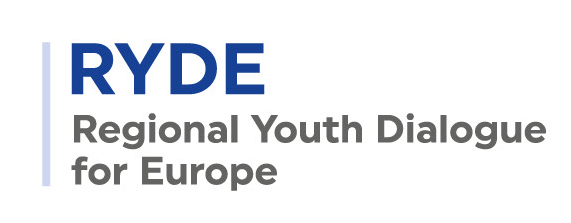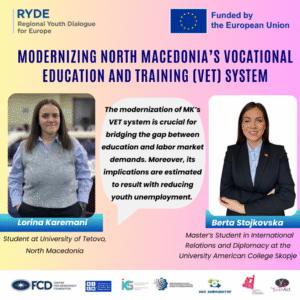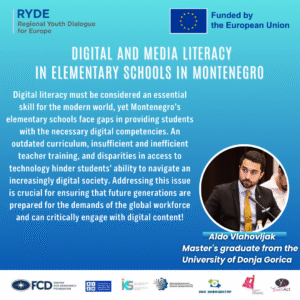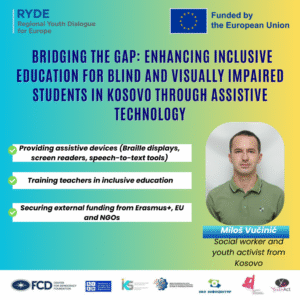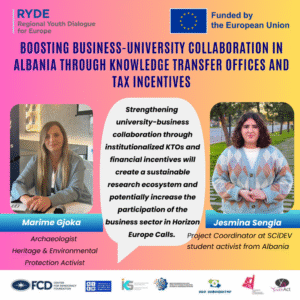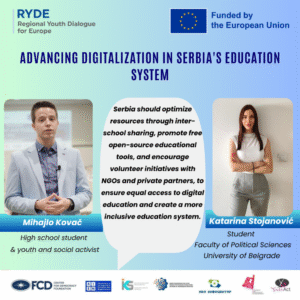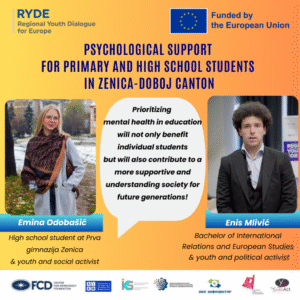Authors: Mihajlo Kovač and Katarina Stojanović, Serbia
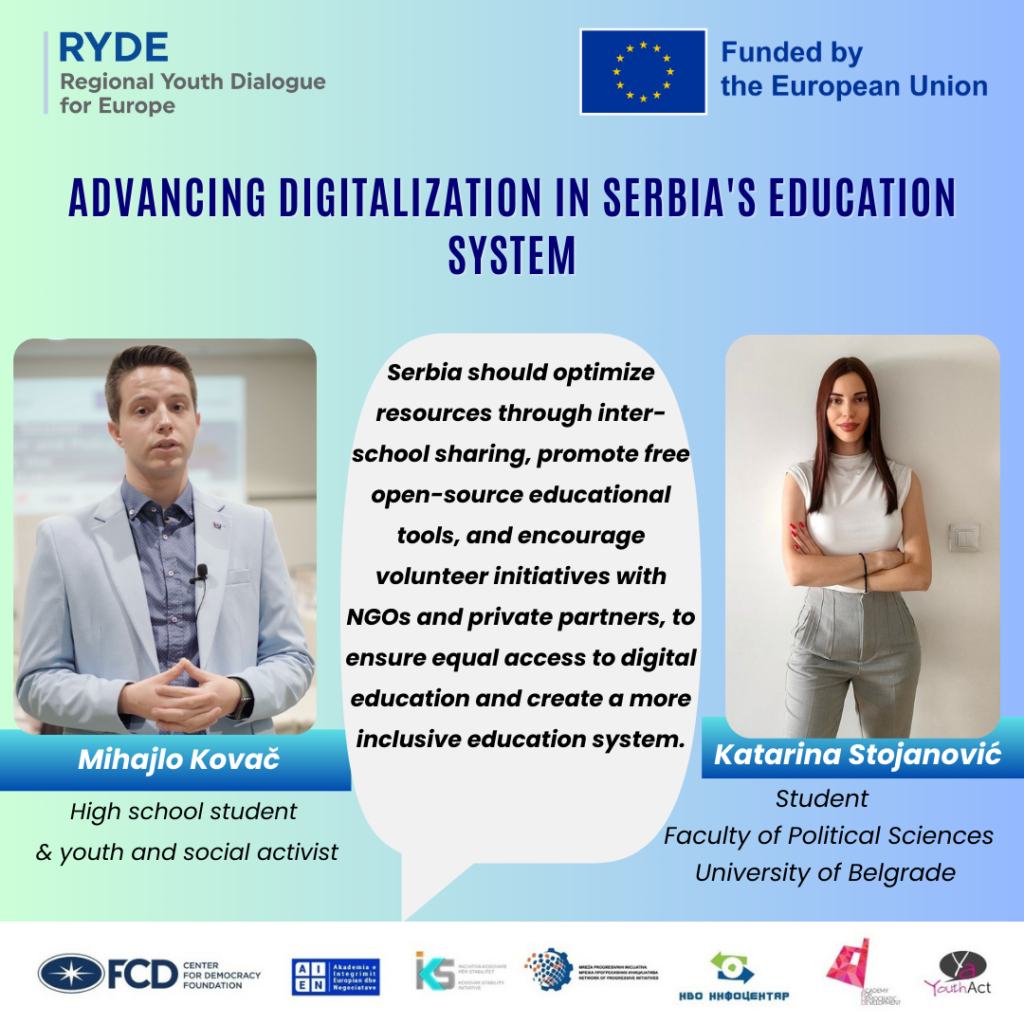
Digitalization is a critical step toward a more inclusive and innovative education system in Serbia. This policy brief explores how inter-school collaboration, free open-source tools, and volunteer initiatives can bridge the digital divide and ensure that all students, regardless of their socio-economic background, have access to modern learning resources.
By optimizing resource-sharing among schools, investing in accessible technology, and fostering partnerships with NGOs and private organizations, Serbia can build a sustainable digital education framework that empowers students and educators alike.
By embracing digital transformation, Serbia can equip its students with the skills needed for a competitive global workforce. Integrating technology into education not only enhances learning experiences but also fosters innovation and critical thinking. A well-executed digital strategy can bridge socio-economic disparities, ensuring that every student, regardless of location or background, has equal opportunities to thrive in the digital age. Now is the time for policymakers, educators, and private stakeholders to collaborate and take decisive steps toward a more inclusive, technology-driven education system.
📖 Read the full policy brief here
About Authors:
Mihajlo Kovač – High school student | Youth and social activist
Katarina Stojanović – Student, Faculty of Political Sciences, University of Belgrade
